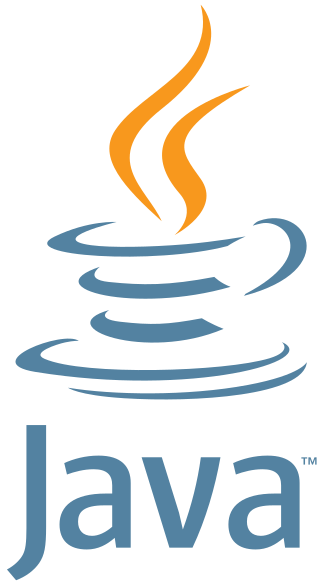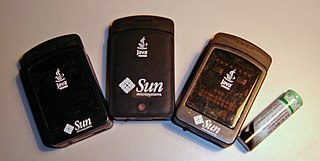
Java applets were small applications written in the Java programming language, or another programming language that compiles to Java bytecode, and delivered to users in the form of Java bytecode. The user launched the Java applet from a web page, and the applet was then executed within a Java virtual machine (JVM) in a process separate from the web browser itself. A Java applet could appear in a frame of the web page, a new application window, Sun's AppletViewer, or a stand-alone tool for testing applets.

Java is a high-level, class-based, object-oriented programming language that is designed to have as few implementation dependencies as possible. It is a general-purpose programming language intended to let programmers write once, run anywhere (WORA), meaning that compiled Java code can run on all platforms that support Java without the need to recompile. Java applications are typically compiled to bytecode that can run on any Java virtual machine (JVM) regardless of the underlying computer architecture. The syntax of Java is similar to C and C++, but has fewer low-level facilities than either of them. The Java runtime provides dynamic capabilities that are typically not available in traditional compiled languages. As of 2019, Java was one of the most popular programming languages in use according to GitHub, particularly for client–server web applications, with a reported 9 million developers.

A Java virtual machine (JVM) is a virtual machine that enables a computer to run Java programs as well as programs written in other languages that are also compiled to Java bytecode. The JVM is detailed by a specification that formally describes what is required in a JVM implementation. Having a specification ensures interoperability of Java programs across different implementations so that program authors using the Java Development Kit (JDK) need not worry about idiosyncrasies of the underlying hardware platform.

Sun Microsystems, Inc., was an American technology company that sold computers, computer components, software, and information technology services and created the Java programming language, the Solaris operating system, ZFS, the Network File System (NFS), and SPARC microprocessors. Sun contributed significantly to the evolution of several key computing technologies, among them Unix, RISC processors, thin client computing, and virtualized computing. Notable Sun acquisitions include Cray Business Systems Division, Storagetek, and Innotek GmbH, creators of VirtualBox. Sun was founded on February 24, 1982. At its height, the Sun headquarters were in Santa Clara, California, on the former west campus of the Agnews Developmental Center.
Java Platform, Micro Edition or Java ME is a computing platform for development and deployment of portable code for embedded and mobile devices. Java ME was formerly known as Java 2 Platform, Micro Edition or J2ME. As of December 22, 2006, the Java ME source code is licensed under the GNU General Public License, and is released under the project name phoneME.

A Jakarta Servlet, formerly Java Servlet is a Java software component that extends the capabilities of a server. Although servlets can respond to many types of requests, they most commonly implement web containers for hosting web applications on web servers and thus qualify as a server-side servlet web API. Such web servlets are the Java counterpart to other dynamic web content technologies such as PHP and ASP.NET.
Free Java implementations are software projects that implement Oracle's Java technologies and are distributed under free software licences, making them free software. Sun released most of its Java source code as free software in May 2007, so it can now almost be considered a free Java implementation. Java implementations include compilers, runtimes, class libraries, etc. Advocates of free and open source software refer to free or open source Java virtual machine software as free runtimes or free Java runtimes.
HotSpot, released as Java HotSpot Performance Engine, is a Java virtual machine for desktop and server computers, developed by Sun Microsystems and now maintained and distributed by Oracle Corporation. It features improved performance via methods such as just-in-time compilation and adaptive optimization.
In computing, Java Web Start is a deprecated framework developed by Sun Microsystems that allows users to start application software for the Java Platform directly from the Internet using a web browser. The technology enables seamless version updating for globally distributed applications and greater control of memory allocation to the Java virtual machine.

GlassFish is an open-source Jakarta EE platform application server project started by Sun Microsystems, then sponsored by Oracle Corporation, and now living at the Eclipse Foundation and supported by Payara, Oracle and Red Hat. The supported version under Oracle was called Oracle GlassFish Server. GlassFish is free software and was initially dual-licensed under two free software licences: the Common Development and Distribution License (CDDL) and the GNU General Public License (GPL) with the Classpath exception. After having been transferred to Eclipse, GlassFish remained dual-licensed, but the CDDL license was replaced by the Eclipse Public License (EPL).
java.net was a Java technology related community website. It also offered a web-based source code repository for Java projects. It was shut down in April 2017.

Sun SPOT was a sensor node for a wireless sensor network developed by Sun Microsystems announced in 2007. The device used the IEEE 802.15.4 standard for its networking, and unlike other available sensor nodes, used the Squawk Java virtual machine.
Comet is a web application model in which a long-held HTTPS request allows a web server to push data to a browser, without the browser explicitly requesting it. Comet is an umbrella term, encompassing multiple techniques for achieving this interaction. All these methods rely on features included by default in browsers, such as JavaScript, rather than on non-default plugins. The Comet approach differs from the original model of the web, in which a browser requests a complete web page at a time.

Java is a set of computer software and specifications developed by James Gosling at Sun Microsystems that provides a system for developing application software and deploying it in a cross-platform computing environment. Java is used in a wide variety of computing platforms from embedded devices and mobile phones to enterprise servers and supercomputers. Java applets, which are less common than standalone Java applications, were commonly run in secure, sandboxed environments to provide many features of native applications through being embedded in HTML pages.
OpenJDK is a free and open-source implementation of the Java Platform, Standard Edition. It is the result of an effort Sun Microsystems began in 2006. The implementation is licensed under the GPL-2.0-only with a linking exception. Were it not for the GPL linking exception, components that linked to the Java Class Library would be subject to the terms of the GPL license. OpenJDK is the official reference implementation of Java SE since version 7.

JavaFX is a software platform for creating and delivering desktop applications, as well as rich web applications that can run across a wide variety of devices. JavaFX has support for desktop computers and web browsers on Microsoft Windows, Linux, and macOS, as well as mobile devices running iOS and Android, through Gluon Mobile.
IcedTea is a build and integration project for OpenJDK launched by Red Hat in June 2007. IcedTea also includes some addon libraries: IcedTea-Web is a free software implementation of Java Web Start and the Java web browser applet plugin. IcedTea-Sound is a collection of plugins for the Java sound subsystem, including the PulseAudio provider which used to be included with IcedTea. The Free Software Foundation recommends that all Java programmers use IcedTea as their development environment.
The Microsoft Java Virtual Machine (MSJVM) is a discontinued proprietary Java virtual machine from Microsoft. It was first made available for Internet Explorer 3 so that users could run Java applets when browsing on the World Wide Web. It was the fastest Windows-based implementation of a Java virtual machine for the first two years after its release. Sun Microsystems, the creator of Java, sued Microsoft in October 1997 for incompletely implementing the Java 1.1 standard. It was also named in the United States v. Microsoft Corp. antitrust civil actions, as an implementation of Microsoft's "Embrace, extend and extinguish" strategy. In 2001, Microsoft settled the lawsuit with Sun and discontinued its Java implementation.

Lars Bak is a Danish computer programmer. He is known as a JavaScript expert and for his work on virtual machines. He previously worked for Google, having contributed to the Chrome browser by developing the V8 JavaScript engine.
The Java Development Kit (JDK) is a distribution of Java Technology by Oracle Corporation. It implements the Java Language Specification (JLS) and the Java Virtual Machine Specification (JVMS) and provides the Standard Edition (SE) of the Java Application Programming Interface (API). It is derivative of the community driven OpenJDK which Oracle stewards. It provides software for working with Java applications. Examples of included software are the virtual machine, a compiler, performance monitoring tools, a debugger, and other utilities that Oracle considers useful for a Java programmer.











